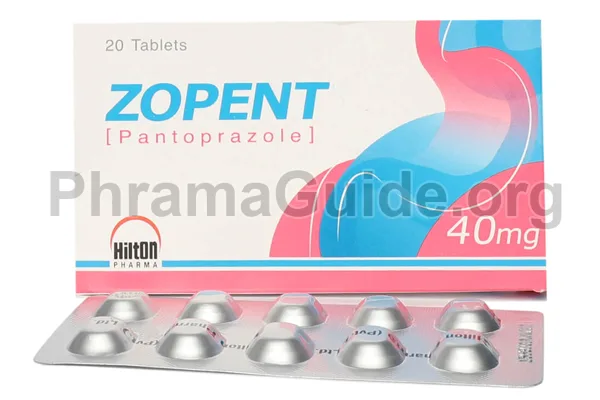Zopent is a medication that belongs to a class of drugs known as proton pump inhibitors (PPIs). It is commonly prescribed to reduce stomach acid production and is used to treat conditions such as gastroesophageal reflux disease (GERD), stomach ulcers, and Zollinger-Ellison syndrome. While Zopent is generally well-tolerated, it can have side effects, just like any medication.
Common Side Effects of Zopent
- Headache: Some people may experience headaches while taking Zopent.
- Nausea and Vomiting: These gastrointestinal symptoms can occur in some individuals.
- Diarrhea: Zopent may lead to changes in bowel movements, including diarrhea.
- Abdominal Pain: Some users may experience abdominal discomfort or pain.
- Flatulence: Increased gas production or bloating can occur.
- Constipation: In some cases, Zopent may lead to constipation.
- Dizziness: Zopent might cause dizziness in certain individuals.
- Rash: Skin rashes or itching can be a rare side effect.
- Increased Risk of Bone Fractures: Long-term use of PPIs, including Zopent, has been associated with a slightly increased risk of bone fractures, especially in the hip, wrist, or spine.
- Vitamin and Mineral Deficiencies: Prolonged use of PPIs can reduce the absorption of certain vitamins and minerals, including vitamin B12, calcium, and magnesium. This can lead to deficiencies if not managed properly.

What is Zopent?
Zopent is one of the leading brands of Pantoprazole, manufactured and marketed by Hilton Pharmaceutical, Pakistan.
Zopent : Available Formulations and Strengths
Presently, Zopent is available in tablet form
Zopent Tables : 20mg, and 40mg strengths
What Are The Possible Drug Interactions of Zopent?
- Antifungal Medications: Certain antifungal drugs like ketoconazole and itraconazole can reduce the effectiveness of Zopent by interfering with its absorption. It’s advisable to take these antifungals at least 2 hours apart from Zopent.
- Clopidogrel: Combining Zopent with the antiplatelet medication clopidogrel may reduce the effectiveness of clopidogrel in preventing blood clots. Consult your healthcare provider for alternative options or advice.
- Warfarin: Zopent can interact with the blood-thinning medication warfarin, potentially increasing the risk of bleeding. Regular monitoring of your INR (International Normalized Ratio) is necessary when using these drugs together.
- Atazanavir and Nelfinavir: Zopent can reduce the absorption of certain antiretroviral medications used to treat HIV. If you’re taking these drugs, consult your HIV specialist for appropriate dosing recommendations.
- Methotrexate: Zopent may increase the concentration of methotrexate in the blood, potentially leading to higher levels of methotrexate-related side effects. Your doctor may adjust your methotrexate dose and monitor you more closely.
- Digoxin: Zopent can increase the absorption of digoxin, which is used to treat heart conditions. Your healthcare provider may need to adjust your digoxin dose and monitor your levels carefully.
- Iron Supplements: Zopent can reduce the absorption of iron from supplements and iron-containing foods. If you are taking iron supplements, it’s best to take them at least 2 hours before or after Zopent.
- Tacrolimus: Zopent may increase the blood levels of immunosuppressive drugs like tacrolimus, which are used in organ transplant patients. Close monitoring and potential dose adjustments are necessary.
- Other Gastric Acid Suppressors: Combining Zopent with other acid-reducing medications, such as H2-receptor antagonists (e.g., ranitidine), is generally not recommended without medical supervision, as it may increase the risk of side effects and decrease the effectiveness of treatment.
- Anticoagulants: If you are taking anticoagulant medications such as heparin or enoxaparin, be cautious when using Zopent, as it may increase the risk of bleeding.

Leave A Comment